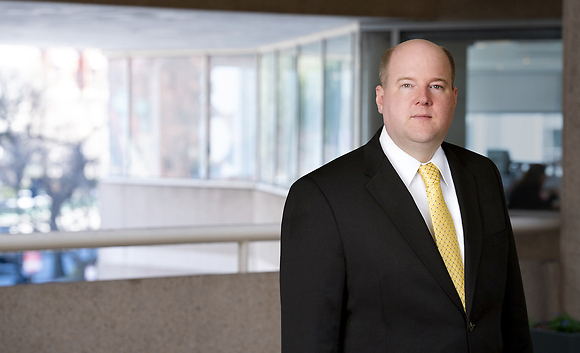Reorg Highlights Kevin Maclay’s Arguments in Aldrich Pump and Murray Boiler Chapter 11 Cases
Judge J. Craig Whitley has heard arguments and is considering motions to dismiss the Aldrich Pump and Murray Boiler chapter 11 cases brought by the official asbestos claimant committee (ACC) and a group of mesothelioma victims.
. . .
Kevin Maclay of Caplin & Drysdale, co-counsel for the ACC, argued that even if the court decides it has subject matter jurisdiction, it should dismiss the cases under Bankruptcy Code section 1112(b), the bankruptcy dismissal statute. Maclay maintained that the Fourth Circuit’s 1989 Carolin decision governing bad-faith dismissals is only applicable at the outset of a bankruptcy case and therefore does not apply to the ACC’s motion brought about three years into the case.
As a result, Maclay focused on three separate grounds for “cause” for dismissal under section 1112(b) raised in other applicable case law. First, he argued that the debtors bear several hallmarks of “new debtor syndrome,” where a debtor is created solely for the purpose of commencing a bankruptcy case, including the debtors’ creation via divisional merger 49 days before the petition date, the transfer of asbestos liabilities without adequate consideration, and no ongoing business or employees of the debtors’ own. Maclay further argued that the debtors commenced the bankruptcy case as a litigation tactic, asserting that the divisional merger was designed to coerce asbestos claimants into an unfavorable settlement through bankruptcy and that the debtors are running the bankruptcy for the benefit of their nondebtor affiliates.
Maclay continued that the cases should be dismissed even if Carolin applies, because that case’s test for “objective futility” as a basis for dismissal is satisfied. As explained by the parties today, objective futility under Carolin focuses on whether there is a reasonable hope for a debtor’s rehabilitation. The second prong, subjective bad faith, focuses on whether a debtor’s true motivation for filing for bankruptcy is to take advantage of the automatic stay without any intent to reorganize.
Maclay argued that objective futility is demonstrated here by the debtors’ filing of a plan approximately two years ago without a disclosure statement or any subsequent attempt to solicit votes. According to Maclay, this amounts to a “tacit admission” by the debtors that the plan is unconfirmable.
To see the full article, please visit Reorg’s website (subscription required) or see the Related Materials tab below.
Attorneys
- Member
